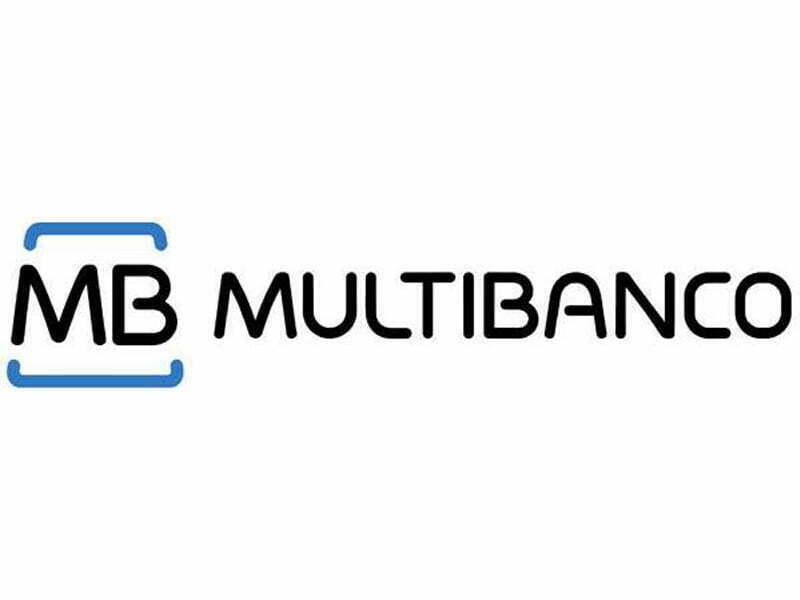Online payment methods in Portugal
Portugal is rapidly moving towards new financial realities, transforming itself into a country where digital payments have become an integral part of everyday life. Here, at the crossroads of tradition and innovation, unique approaches to paying for goods and services are emerging.

Let’s dive into the fascinating world of payment methods in Portugal and find out how consumers will pay for their purchases in 2025.
Card payments
Card payments are widely adopted across Portugal’s payment landscape. Global giants Visa and Mastercard, which are accepted almost everywhere, are the leaders. These brands are associated with reliability and widespread availability, which explains their popularity among locals and tourists.
Credit cards are more often used for large purchases, while debit cards are used for small everyday expenses. Banks such as Caixa Geral de Depósitos, Millennium BCP and Novo Banco issue the majority of cards, ensuring a high degree of security and convenience when conducting online transactions.
Payments in instalments: BNPL is gaining momentum
Buy Now, Pay Later (BNPL) has become a real hit among Portuguese consumers. Young people are particularly fond of such services, which allow them to buy what they want today and pay for it tomorrow in small instalments.
The most notable representatives of Portugal payment method:
- Klarna – an international leader that wins the hearts of shoppers with its deferred payment option.
- Scalapay – a young but ambitious player offering convenient instalments in three equal payments.
- PayPal's Pay in 4 – a familiar name with a new feature that splits payments into four equal parts.
- CTT Now! and Cetelem – local solutions that integrate directly into retail chains and banking ecosystems.
These services make shopping accessible and convenient, reducing the psychological barrier to large expenditures.
Bank transfer – Multibanco
Portuguese people like to control their finances, and nothing gives them more control than a direct bank transfer. Multibanco is a national system, a symbol of stability and confidence in the future.

The purchase procedure is quite simple:
- The consumer selects Multibanco when placing an order.
- They receive a unique transaction number.
- They make the payment via internet banking, mobile banking or the nearest ATM.
Multibanco has gained widespread adoption due to its high processing speed and transparent operations. The complementary service MB WAY extends this functionality by enabling instant peer‑to‑peer transfers via mobile devices
SEPA Instant
The European instant payment system SEPA Instant Credit Transfer (SCT Inst) has become a bridge between Portugal and the rest of Europe. It allows cross-border transactions to be carried out instantly, opening up new horizons for business and tourism.
This service is particularly attractive for those who do business outside the country, providing seamless integration into the single European economy.
Do you have any more questions?
Fill out the form and we will contact you
*By submitting this application, you consent to the processing of your personal data in accordance with the privacy policy.
Digital wallets
Smartphones have become veritable financial centres, and Portugal is no exception. The most common digital wallets are:
- MB WAY — the undisputed champion with a market share of around 45%. More than 4.5 million active users confirm its success. Integration with 28 banks makes it an indispensable tool for online shopping and P2P transfers.
- Apple Pay and Google Pay — convenient solutions for smartphone owners, allowing them to store cards and make purchases with a single touch.
- PayPal — a universal solution that works both in Portugal and far beyond its borders.
- Moey — is a new product from Crédito Agrícola, aimed at a young audience eager for simple and fast solutions.
These are some of the most popular Portuguese payment methods, especially in e-commerce, as well as gambling and sports betting.
Cash & Payshop: the legacy of the past
Despite rapid digitalisation, Portugal cherishes the memory of paper banknotes. Some shoppers continue to prefer cash payments, especially older citizens or those who are distrustful of digital technologies.
This is where Payshop comes in – a unique system that allows you to pay for your online order at your nearest shop or post office. The process is simple: the customer receives a unique code, takes it to the service point and pays in cash. This scheme combines the advantages of the digital world with the warmth of human contact.
Why it is important for businesses to understand the structure of customer preferences
Imagine this situation: you have spent months developing your dream product, put your heart and soul into a marketing campaign, and then… silence. Visitors come to the website, add items to their basket and disappear. Sound familiar? Most likely, you’ve overlooked a key detail – the structure of your customers’ preferences.

Portugal, like any country with a unique culture, has its own consumption characteristics. Here, despite the general trend towards cashless payments, there is still a commitment to traditional payment methods. Some customers prefer to use credit cards, others prefer debit cards, and still others choose digital wallets or even instalment plans (BNPL). Some are used to seeing familiar international brand logos, while others are looking for local solutions.
Understanding these nuances allows you to create a truly user-friendly payment interface that attracts customers rather than repels them. Research shows that simply expanding the list of available payment methods can reduce the number of abandoned shopping carts by 15-20%.
In addition, knowing the preferences of your target audience allows you to build an effective communication strategy tailored to specific segments. For example, young people have a positive perception of mobile payments and BNPL solutions, while the older generation often prefers traditional bank transfers or cash.
Finally, a deep dive into the structure of preferences helps to identify customer pain points and eliminate them in a timely manner. Perhaps the reason for leaving was an inconveniently located payment button or an unclear interface. By removing such obstacles, you increase loyalty and strengthen your brand’s reputation.
Factors that will increase your appeal to customers
So, you understand the importance of studying preferences. Now the next question arises: how to apply this knowledge in practice? Here are five key factors that can significantly enhance your competitiveness:
Variety of payment methods
Offer your customers as many options as possible: credit and debit cards, digital wallets, BNPL services, bank transfers, and even cash via PayShop. This approach demonstrates your concern for the comfort of each visitor and reduces the likelihood of them abandoning their purchase.
Localisation of the payment process
Translate all elements of your website into Portuguese, set prices in euros, and add regional accents. This will show respect for the country’s culture and increase customer trust. Remember that even small details such as the format of dates or phone numbers can play a decisive role.
Transparency of international transactions
If your business is focused on foreign customers, be extremely transparent about currency conversion and fees. Clearly explaining all the details will prevent unpleasant surprises and maintain a positive image for your company.
Compliance with European standards
Investing in compliance with EU legislation, especially GDPR, will pay off handsomely. Violating the rules can result in huge fines, while compliance strengthens your reputation as a reliable and responsible organisation.
High-quality technical support
Organise round-the-clock support in Portuguese. Customers appreciate the ability to quickly resolve issues without encountering language barriers.
How to choose a gateway for your business and why is Billblend the best option?
Choosing a payment gateway is a crucial step that will determine the future of your business. The selection criteria are simple but extremely important: cost, security, speed, payment method support, ease of integration, and technical support. Let’s take a look at why Billblend deserves to be called the best payment gateway for businesses in Portugal:
Versatility and wide coverage
Billblend offers over 100 payment methods, including credit and debit cards, digital wallets, QR payments, and BNPL services. This variety covers virtually all possible customer interaction scenarios.
Quick integration
Simple API installation allows you to quickly connect the system to your existing infrastructure. A single control panel makes it easy to monitor all transactions in real time.
Individual approach
Creating unique payment pages tailored to your brand’s corporate identity enhances recognition and improves the user experience.
By choosing Billblend, you get a powerful tool for growth and strengthening your position in the Portuguese market.
Frequently asked questions
What online payment methods are popular in Portugal?
Bank cards (Visa, Mastercard), mobile wallets (MB Way), instalment plans (BNPL), bank transfers (Multibanco), SEPA instant payments, digital wallets (Apple Pay, Google Pay, PayPal) and cash payments via Payshop are widely used in Portugal.
What is MB Way and how do I use it?
MB Way is a popular mobile payment service used by over 4.5 million Portuguese people. To pay, simply download the app, link your bank card and scan the QR code or enter the amount manually.
What is BNPL and why is it popular in Portugal?
BNPL (Buy Now, Pay Later) is a payment system that allows you to purchase goods now and pay for them later in several instalments. Klarna, Scalapay and PayPal’s Pay in 4 are popular services in Portugal.
How does the Payshop system work?
Payshop allows you to pay for online orders in cash at service points. The buyer receives a unique code, goes to a shop or post office and makes the payment there in person.
What features should foreign companies consider when working with Portuguese payments?
It is important for foreign companies to translate their interfaces into Portuguese, display prices in euros, comply with GDPR, use SEPA for international transfers, and support popular local payment methods (MB Way, Multibanco).









